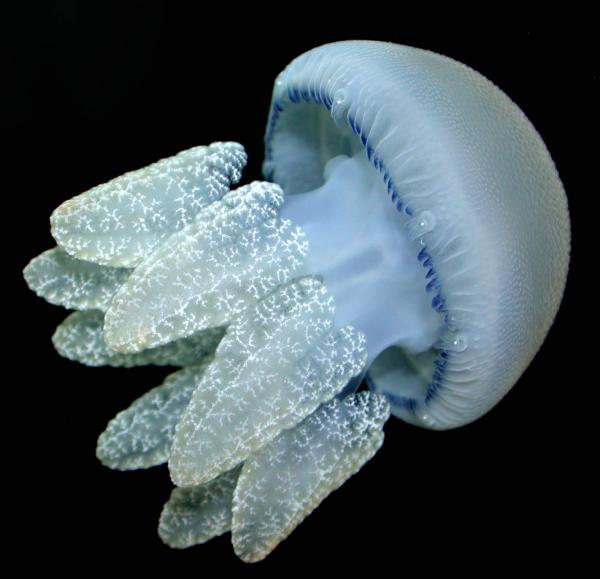'Booming' jellyfish - a threat to the ocean
Actions should be taken soon to solve the problem of rapidly increasing the number of jellyfish, which is considered a consequence of human activities.
In his new study, the University of Queensland scientist Anthony Richardson gave quite convincing evidence that jellyfish 'explosion' is a consequence of overfishing, and an increase in chemical fertilizers and waste.
'Dense jellyfish gathering may be a natural phenomenon of stable marine ecosystems but now a clear reality is that the spread of jellyfish has exploded across the oceans,' Dr. Richardson said.
'In recent years, jellyfish booms have been recorded in the Mediterranean, Gulf of Mexico, Black Sea and Caspia Sea, northeastern US coast and especially Far East Sea.'
'The strongest boom is in Japanese waters. Here Nomura jellyfish are found to be 2 meters in diameter and weigh up to 200 kg. '

The number of jellyfish, such as 'Catostylus', increases rapidly due to the combination of pollution factors, overfishing, and climate change (Photo: Lisa Gershwin)
Research conducted by Dr. Richardson and colleagues at the University of Miami, Swansea University and the University of Western Cape was published in an international journal Trends in Ecology and Evolution at the right time of world oceans 8 / 6.
'Through the process of competing to survive and eat each other, fish can maintain the number of jellyfish under control, but overfishing has destroyed that balance.' Dr. Richardson said. 'For example, in the Namibian coast, rampant fishing reduces the amount of sardines to only one tenth, and jellyfish have replaced them to become overwhelming.'
Climate change also creates favorable conditions for jellyfish , manifested in the abundance of flagellum, the staple food source of jellyfish. Warming seawater also contributes to the increase in dispersal of many jellyfish species.
'More evidence suggests that the open ocean ecosystem may be overturned. Fish can lose dominance and replace jellyfish in that position. This may involve many other ecological, economic and social consequences, ' said Dr. Richardson.
'We need to initiate careful and scientific control of the marine environment to prevent similar incidents of possible jellyfish outbreaks.'
References:
Richardson et al.The jellyfish joyride: causes, consequences and management responses to gelatinous future.Trends in Ecology & Evolution, 2009;24 (6): 312 DOI: 10.1016 / j.tree.2009.01.010
- Real damage of the jellyfish threat
- 65 interesting things about jellyfish (1)
- Startled with the danger of jellyfish invading the oceans
- The water in the ocean is mixed by jellyfish
- Assassins throughout the ocean
- This jellyfish is extremely dangerous, and its sperm also have an extremely creepy name
- Photos of 'strange objects' on the ocean floor
- Video: Jellyfish in the deepest ocean ditch in the world
- Jellyfish species can 'knock down' American carriers
- 65 interesting things about jellyfish (2)
- Giant jellyfish shed fish vessels
- Beautiful sparkling jellyfish kingdom
 Surprised: Fish that live in the dark ocean still see colors
Surprised: Fish that live in the dark ocean still see colors Japan suddenly caught the creature that caused the earthquake in the legend
Japan suddenly caught the creature that caused the earthquake in the legend A series of gray whale carcasses washed ashore on California's coast
A series of gray whale carcasses washed ashore on California's coast Compare the size of shark species in the world
Compare the size of shark species in the world